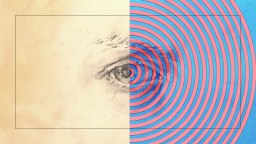There are two things we typically consider to be points against us in life: feeling out of our league, and being slow learners. Here, however, Professor Barbara Oakley turns convention on its head to show how they’re really assets to your education. If you’re about to start a new skill or job and feel the onset of imposter syndrome—are you the least qualified person in the room? Did you ‘fake’ your way into this opportunity?—embrace it; Oakley contests that seeing the world with a beginner’s mind actually opens you up to learning. Overconfidence can make us blind to our mistakes, so humility is a tool in itself. And as for being a slow learner, Oakley uses the analogy of a race car driver and a hiker to describe two distinct learning styles. Both these types reach the finish line or the mountain peak, but one takes the time to look more closely at details and learn a lesson more deeply, while all the other might see is a blur. Barbara Oakley’s most recent book is Mindshift: Break Through Obstacles to Learning and Discover Your Hidden Potential, and you can find the Mindshift course here.
Barbara Oakley, PhD, is a professor of engineering at Oakland University in Rochester, Michigan, and Ramón y Cajal Distinguished Scholar of Global Digital Learning at McMaster University. Her research involves[…]
What’s the best way to learn something new? Embrace your inner imposter, and don’t worry about speed—here’s why.
▸
3 min
—
with
Sign up for Big Think on Substack
The most surprising and impactful new stories delivered to your inbox every week, for free.
▸
6 min
—
with
Related
What is perception, really? Philosopher Alva Noë on why perception is a puzzling phenomenon:
▸
3 min
—
with
One dose of ibogaine was shown to dramatically reduce depression and PTSD.
Acclaimed psychiatrist Bessel van der Kolk, author of “The Body Keeps The Score,” discusses the widespread existence of trauma and how it settles in our bodies.
▸
with
Combining years of neurological research and mindfulness techniques, Dr. Heather Berlin helps us better understand how the body’s most complex organ can easily be misled into negative thinking – and how we can stop that from happening.
▸
with
Yes, you CAN be a “math person” — as long as you follow these learning techniques.
▸
4 min
—
with






